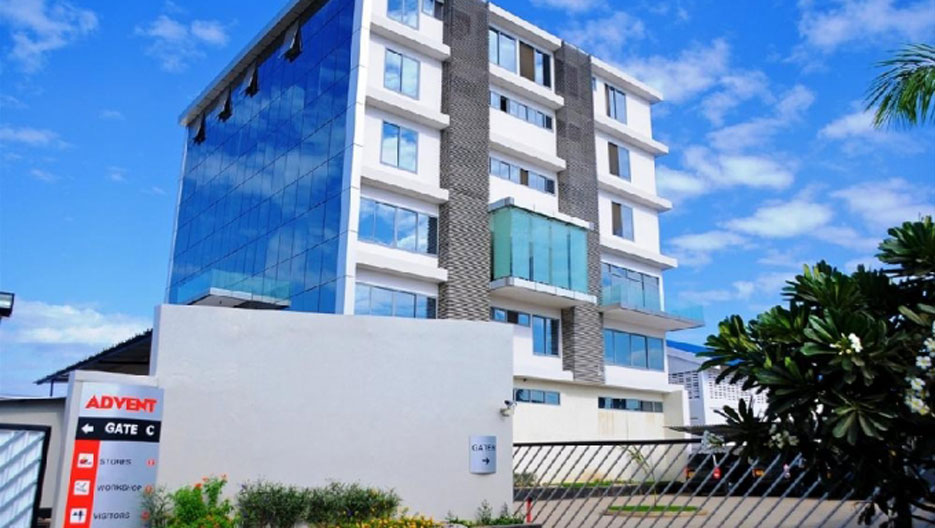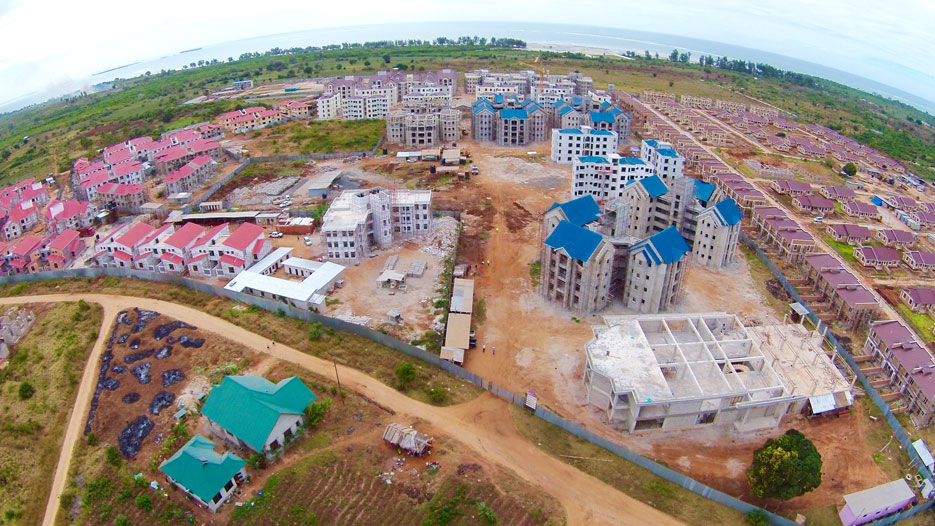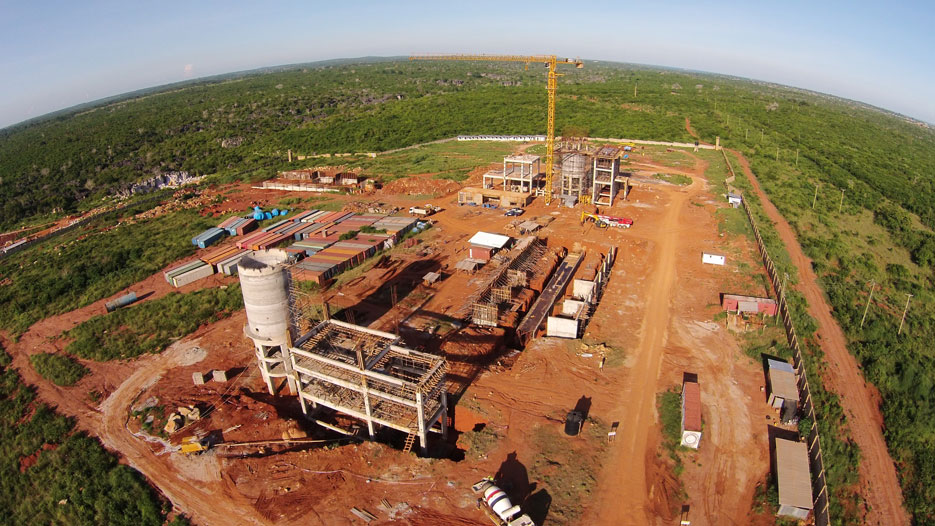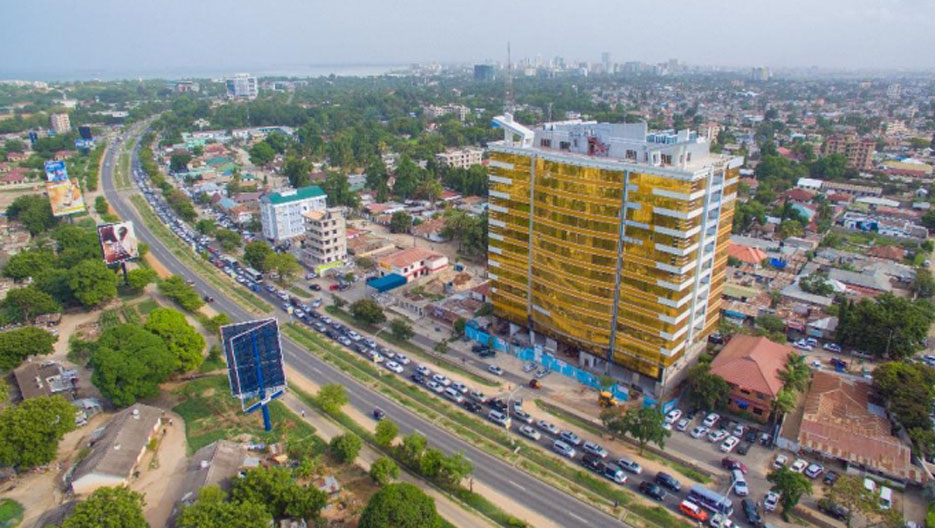Advent Construction: One of Tanzania’s Largest Construction Companies
Dhruv Jog gives an overview of Advent Construction, one of Tanzania’s largest and most recognized construction companies, with activities spread all over the country, ranging from large scale civil works in the manufacturing and extracting sector, to 5 star lodges and hotels.
Interview with Dhruv Jog, Director of Advent Construction
Your company has built a very diverse portfolio of cutting-edge factories and educational facilities, mining facilities, residential and hospitality facilities, shopping and commercial complexes, and other very versatile multi-use projects. Could you just commence by telling us the role Advent has played in transforming both the country and the region?
Advent is a 21 year old company now and it is a fully Tanzanian, family founded entity. It still works under the umbrella of the founding family, but is now run by a team of astute and experienced professionals.
As you mentioned, we have worked across a wide spectrum and have been involved in all sorts of projects. What we have always tried to strive towards, and we believe we have been extremely successful at, is to push the envelope when it comes to quality. The construction sector has seen dramatic growth in Tanzania over the past 10 years, and we have always tried to be at the forefront of this, in terms of pushing for quality and standard compliance.
We remain the first and only ISO-certified construction company in Tanzania, and we take that as a testament to our commitment to quality. What we strive to achieve is to increase the overall level of quality in the sector across the country, and thereby encourage other construction companies to ‘keep up’. We are quite proud to say that we currently operate at a standard that is at a par with the best global practices when it comes to technology, equipment, speed and quality of construction.
Therefore, the industry has seen a paramount change over the last 10 years, and we feel that we have contributed significantly to this. The acceleration in capacity of local construction companies has been explosive over the last 10 years and we are proud to be at its forefront.
Tanzania’s construction sector is currently witnessing an unprecedented growth phase. And, as demand soars in construction, real estate and the oil and gas projects currently underway, can you provide us with some insights as to how well placed Advent Construction is, in order to really take advantage of this explosion in activity, and could you also outline what projects you are currently working on?
We were among the first companies to procure our own in-house batching facility, which means we batch our own concrete; we invest very heavily in R&D, trying to ensure that we absorb and bring over the best global technologies into this market.
It’s interesting that you mention the Oil and Gas industry. We are the only local construction company that has taken on as much work for this industry as we have done. At one point, we had three projects going on at the same time in Mtwara, in southern Tanzania, with our own regional office. The Oil and Gas industry has somewhat slowed down recently, pending legislative changes and so on, but when the industry was very active in terms of exploration, we did a lot of work for them. The main reason for this is that we were in line with their requirements in terms of quality and compliance. The fact that they stopped using international contractors and started using a local construction company was fantastic for us. Here was proof that we were in line with what they were used to, and the Oil and Gas industry has a very high threshold when it comes to performance. We have received written accolades and bonuses for early completion as well as perfect adherence to HSSE standards in the stringent OnG market.

I just wanted to come onto that now, namely the issue of Advent construction having always been at the vanguard of new construction technologies. Can you share with us the ways in which Advent has really ‘moved the dial’ and the role the company has played in terms of enhancing overall quality standards in Tanzania?
I can give you the example of safety standards. We were the first local construction company to have a dedicated Health and Safety department. We make use of best practices when it comes to Health and Safety on-site, throughout our various job locations, whether in our Head Office, on our batching and steel fabrication yards, or on the projects themselves. So, we have always been consciously committed to ensuring that we are at the forefront of whatever technology is available. For instance, we were among the first companies to procure our own in-house batching facility, which means we batch our own concrete; we invest very heavily in R&D, trying to ensure that we absorb and bring over the best global technologies into this market – as you will appreciate that back-up services and the like are not always readily available to us in this environment, we therefore also have a wide base of activities we engage in across our supply chain from materials sourcing and procurement, all the way through to quality control mechanisms and testing laboratories.
So you are quite vertically-integrated?
Absolutely. As opposed to the global norm of construction companies being very lean on their balance sheets, we operate differently. We own all our own assets, which means that we have to focus across the spectrum of construction activity. This not only includes construction plant and equipment, but also research and development, concrete batching, and so forth, as well as in-house testing laboratories on most of our job sites, i.e. sample testing laboratories that ensure quality assurance and control.
And you currently work, as you mentioned, across a very diverse range of economic sectors: Oil & Gas, state and state-owned enterprises, as well as a mixture of corporate and private clients. Can you tell us what your projections are as to how you expect this mix to evolve in the medium to longer term, over the next 5 to 10 years or so? And, by extension, what this as a ‘bellwether’ will actually tell us, in terms of what we may possibly extrapolate, as to the growth and development of Tanzania’s overall economy?
We are in a very interesting phase at this moment in time. This is something of a transition phase, where we have a new government that is very serious about putting us on the global map. The government has taken drastic steps towards resolving some of the issues that have been holding Tanzania back over the past decade or so. There has been absolute non-tolerance towards graft, while promoting transparency and accountability, which are fantastic things and help put Tanzania on the map.
As a result of this, the kind of investment coming into the country has seen something of a change towards industrial and infrastructure related projects. But the good news is that there is more investment coming in now than there ever has been. The government is very keen on developing infrastructure, which aims to increase the strength of our economy. We are going through a phase where we are seeking to industrialise the country, in the interests of being independent and self-sufficient in the long run, without requiring as much import input as we currently do.
What we are seeing now as a construction company that is somewhat indicative of where the industry is going, is that there are more industrial projects coming into the pipeline. Infrastructure projects are also rising in prominence. Besides that, we are witnessing large-scale urbanisation, which means that there is a huge influx of people coming into Dar es Salaam every day. As such, we have a shortage in housing, which means that the housing market is picking up and funding is becoming available to regular Tanzanians, with mortgage facilities increasingly on offer. Housing therefore represents a humongous opportunity.
In addition, there are all the other things that come with urbanisation, such as hospitals, shopping centres, retail and so on. All of that, coupled with some very large Gas based industries that are set to come onto the market which require heavy civil construction are all projects that are now being put into the pipeline and we foresee that the next 10 to 15 years will be extremely busy.

In terms of some of the major hurdles and challenges that you are faced with within Tanzania’s construction sector, do you feel that there is a sufficiently technically-skilled workforce here that you are able to draw on, and how challenging an operational environment is Tanzania more generally?
You have just picked up on one of the two major challenges that we have to deal with. One is the issue of local skill availability, which is a challenge that you face in every emerging economy. We do not have the experience as a country, and therefore as individuals to draw from. So, if you want to build a complex skyscraper, for instance, this has not been done in the country before, which means that we lack the required experience to do it. Do we have the ability to do it? Yes we do, but in the short term what that sometimes means is that we have to spend a little bit more of our time and resources on training locally-available skill, in order to get them up to par with the standards required. We have been quite successful in doing this, I must say, and we have seen how locally available skill has shown incremental achievement.
With that in mind, what is your view on how much more the government should be doing to invest; particularly in educating Tanzania’s engineers, in order to be able to cope with new world trends and changing Science and Technology, in terms of the Civil Engineering and Construction sector more generally?
If you look at things from a strictly quantitative angle, we do not in fact have a shortage in the number of engineers available. It is more to do with the on-site experience and training that these engineers require. Therefore, the government is taking solid steps to make sure that they churn out the right number of engineers. What would be a little more useful for us to encourage as a construction company would be skilled tradespeople, who could actually work under these engineers and achieve the quality of work that we require.
Recently, in the past few months, the government has invested in that sector. Engineers need tradespeople to work under them. Engineers by themselves can’t really achieve a great deal, and this is an area where the industry needs to be formalised a little more. The government is taking steps towards that. Obviously, this is not an overnight process, so it will take a few years by the time the first well qualified tradespeople hit the market. But we are quite confident that what the government is doing is going to be helpful in the long run.
Of how much concern to your business is the influx of so many Chinese construction companies tendering for work in Tanzania? We have seen projects teeming with Chinese construction members all over Dar es Salaam. Are you worried that these Chinamen are going to come along and eat your lunch, as it were? And from what perspective should Tanzanian authorities perhaps begin to impose a marginal preference for local contractors, particularly with regards to public sector works?
You will recall that a few minutes ago I mentioned that there were two key challenges we are faced with. This is the second challenge.
We operate in a free market. Obviously, anybody is welcome to compete Tanzania, and in some cases this has helped us push the boundaries of what we can deliver. Competition is healthy for the environment.
However, in some cases what happens is that many of these Chinese construction companies are state-owned, which means they have access to subsidised funding and supply of materials, in terms of the pricing of the goods that they bring in. This hurts the industry, because local privately-owned companies don’t have access to such subsidies. The private sector naturally can’t be forced to provide a margin of preference, but it would definitely be helpful if government sector projects could offer a margin of preference for local contractors, by ensuring that local Tanzanian companies such as ours are able to benefit and get the kind of impetus that we require to achieve growth. At the moment, we are competing in a somewhat unfair kind of landscape, in that we do not enjoy the same level of support that some of these Chinese companies have. It is intuitively counterproductive for government funds to be directed towards foreign firms that expatriate much of these funds to their home country where they buy their material, equipment and import labour from. Not only does it result in direct loss of free flowing funds from the economy, but the opportunity cost that local companies suffer as a result of this is unimaginable.

I have met with a number of construction companies in Africa. Generally, the consensus is also that their standard of workmanship is rather below par and shoddy. You have obviously placed much emphasis on attempting to enhance quality and standards, so is this also a concern?
Absolutely. It would be unfair to say that every Chinese construction company does shoddy work, which is untrue. However, as an industry norm, the quality of Chinese construction companies would certainly tend to be more questioned than in our case. I believe this stems from past performance, to be quite honest, and I am pretty sure that they are taking some steps to try and fix that. But for us as a company, our corporate philosophy is to always put quality and reliability first, and this is the point that we try and drive home. Yes, there may be less expensive suppliers out there, for our product or service – however you decide to look at it. But we guarantee quality, and so we are not extremely keen on encouraging the Chinese to increase the level of quality that they deliver, because that’s our USP (unique selling proposition). We try and drive that across to our clients, so that clients who are more serious about quality will come to Advent first.
What do you think the long-term implications are for the country’s economy if the government fails to put in place any protectionist measures?
That’s certainly a question that is forever crossing private companies’ minds. Protectionist measures are sometimes looked at as being unfair, but they are necessary; especially if the company that we are competing with enjoys subsidies that we don’t. If it were simply a foreign company wishing to expand into Tanzania, they are by all means welcome. But if the government doesn’t offer us the right kind of support we require, in the long run Tanzania will suffer as a country. Some private companies are not as large, and therefore as resilient, as Advent might be. The smaller companies will be the first affected, either by being absorbed or being forced to shut down due to being uncompetitive. And if that were to happen, it will eventually affect the local market, as it would affect their suppliers and their workforce. In the long run, even larger companies may be forced to scale down operations in Tanzania due to unfair competition and take their presence to other, more growth friendly regional environments.
A crowding-out effect?
Absolutely.
These Chinese companies also tend to import the materials they use. They don’t buy locally, so there is no linkage into the value chain. Even the technicians and the workmen are brought in from overseas. Correct?
Typically, what you will see on most Chinese construction projects is that there is a large number of Chinese individuals, and a large amount of Chinese materials being used on the project. I’m not an expert on the subject, but we understand that there is a requirement for the state-owned companies to use as much Chinese labour and material as they possibly can. Coupled with the fact that the majority of their building materials is also imported, the net positive impact of their presence on the ground is negligible and in fact, assists in the outflow of Tanzanian resources and capital. There is little to no skills transfer taking place and instead of leaving a positive incrementally growth oriented legacy, most of these companies end up packing up and leaving the country after making the most of its resources and available projects.

So would you say that this leaves little room for a multiplier effect?
Well, it’s surprising how this works out, but government or parastatal projects basically involve Tanzanian taxpayers’ money being spent on Chinese companies, where a large chunk of that money leaves the country to procure equipment or material elsewhere. This is counter-productive and does not exactly encourage or stimulate growth among local companies.
And are you now looking to partner with any other construction companies larger than yourselves, essentially as a way of ensuring your continued growth?
Absolutely. We already represent some of the world’s largest construction groups, with whom we have worked closely in the past and continue to do so, including European companies and regional South African companies. They are very comfortable when it comes to working with Advent, because we generally stand for what their corporate values are. We do intend to sustain these kinds of relationships, as we learn a good deal from these large companies and they also bolster our resources in certain cases, thus enabling us to take on projects that are larger than have been carried out before.
In a growing economy, there’s always the challenge of the next project being much larger than the previous one, and at times you require assistance from more experienced companies.
Finally, we understand that Advent also now has operations in Mozambique? Are there any further international expansion plans on the cards across eastern and central African countries?
We are a relatively conservative company, bearing in mind that we are 100% privately-owned and Tanzanian. As such, we are relatively modest when it comes to expanding. However, Mozambique was a fantastic market for us to get into and we did that about two years ago. Ideally, we would like to consolidate our Mozambican operations and bring them up to a stage similar to that of our Tanzanian operations. Once we achieve that, we definitely aim to move into at least one or two more countries in the region. We have looked at Rwanda and Uganda in the past, so we plan to move into one more country within the next 2-3 years.
But cautiously?
Yes, we want to make sure that we do so as ‘close to the chest’ as possible, in the hope of ensuring that the same things Advent is known for in Tanzania continue to remain the case in Mozambique, in terms of our quality and reliability – and in any other country we venture into. We would like to avoid explosive growth at the expense of the company’s core values.